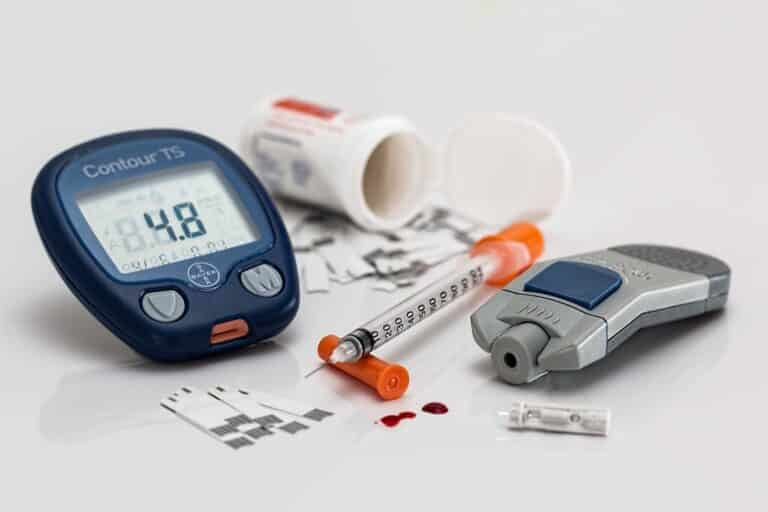Diabetes And Your Memory: 6 Ways Diabetes May Affect Cognition
Many people know what diabetes is as it is a very common condition in the United States. However, very few people know that diabetes can affect your memory. So in the following article, we will tell you about:
- The basics of diabetes and what it does
- The basics of memory loss
- The difference between normal memory loss and dementia or Alzheimer’s Disease
- How diabetes may play a part in memory loss
- 6 ways diabetes may affect cognition and memory
- Things you may be able to do to stave off diabetes-induced memory loss
- Supplements that may be able to help with cognitive function and what to look for in such supplements
Understanding Diabetes, Memory Loss, And How They Are Linked
To understand the relationship between memory loss and diabetes, you have to understand how diabetes affects the body.
Diabetes is a condition in which the body is unable to produce enough insulin to effectively control blood glucose levels. Your body may also produce insulin but is unable to use it to balance blood glucose levels. This type is known as type 2 diabetes. Type 1 diabetes usually occurs from birth or at an early age. Glucose levels in the blood affect many bodily functions, such as energy levels and vascularity.
Memory loss is pretty self-explanatory, but there are different types. Moderate memory loss is normal as we age. Things like forgetting small details, where you placed certain items, or even names are all examples of natural, normal, age-related memory loss. You can use various methods to boost your memory to combat this natural form of memory loss.
On the other hand, there is very little currently known that can boost your memory, if you have Alzheimer’s Disease or dementia. These are cognitive conditions in which an accelerated loss of memory and cognitive function occurs – faster and starker than natural, age-related memory loss.
Dementia and Alzheimer’s Disease
People with dementia or Alzheimer’s Disease often get lost while they are driving or walking, are unable to follow directions, repeat the same questions or statements over and over again, forget common words used in everyday speech, and are less able to live independently as a result. Even the best memory pills may not be enough to help people who have dementia or Alzheimer’s Disease.
It is a problem that is far too common. It is estimated that 5.8 million Americans suffer from Alzheimer’s Disease or some form of dementia. But why is this cognitive disease so prevalent? What makes it more likely that we will suffer from it?
Many doctors recommend a healthy lifestyle to prevent dementia and Alzheimer’s Disease. While the causes of these conditions are still shrouded in mystery, researchers are discovering new links and noticing patterns in people who have the disease. Studies have shown a link between people who are physically active multiple times a week and a reduced chance of developing Alzheimer’s. In essence, physical activity and exercise are one of the few known modifiers for the disease. Staying physically active, engaging in mental activities like crossword puzzles, learning new things, reading, mastering an instrument, and eating brain-healthy foods can help you avoid these insidious cognitive conditions later on.
But what is the link between diabetes and memory loss? How does diabetes affect cognitive function? Let’s take a look.
6 Ways Diabetes Can Rob You Of Your Memory
Unfortunately, there is more than one way you can develop dementia and Alzheimer’s. Recently, doctors and researchers have concluded that there is indeed a link between diabetes and memory loss.
Here are 6 ways by which diabetes affects memory that has thus far been identified:
- Blood Vessel Damage – It is not uncommon for people with type 2 diabetes to experience blood vessel damage. Such damage can cause loss of cognitive function.
- Lack of Blood Flow – Diabetes also affects blood circulation in the body. When there is not enough blood flowing to the brain, loss of certain cognitive functions may occur.
- Insulin Imbalance – Diabetes can cause improper insulin reception in the brain, leading to an insulin imbalance in the body. Since insulin is involved with memory and cognitive faculties, such an imbalance can impair such brain functions.
- Glial Cell Damage – Glial cells are important to metabolic support and neuron communication. It has been shown that diabetes damages glial cells, possibly affecting communication between neurons.
- Capillary Damage – Capillaries are small blood vessels essential to glucose and oxygen exchange within the cells. When these capillaries are damaged, your brain may not get adequate oxygen or glucose, affecting cognition.
- Low Glucose in the Brain – The bottom line is that the brain needs ample glucose to function properly. Diabetes generally disrupts either glucose production or effectiveness. In such cases, even the best memory pills may not help.
What About Supplements?
If you want to preserve your memory, start practicing activies that help in the best diet plan. Certain nutrients have been shown to reduce the risk of memory loss. If you are going to try a supplement, you must know what those nutrients are and look for them in the products you are researching.
And research is important when you are talking about brain supplements. That’s why you should read Neuriva reviews and reviews of products like it before making a decision. You should also consult with your doctor or specialist before taking any brain supplement.
Concluding Thoughts
It’s crucial to be mindful of your body and cognitive abilities. Don’t be afraid to talk to your doctor about any concerns you may be having about your memory. With your doctor’s help, you can preserve your precious cognitive functions and live a full, happy life.







